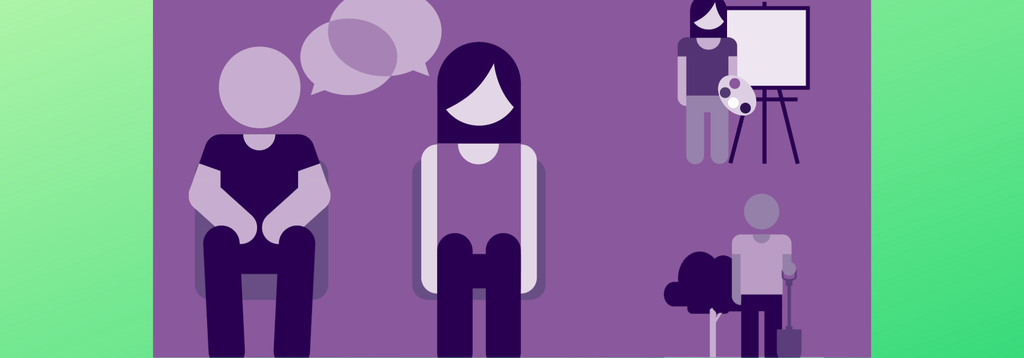
Loneliness is more dangerous for your health than cigarettes. Gardening is more fun than popping blood pressure pills. Ross-on-Wye GP Simon Lennane is among those pushing hard for arts, sport and community groups to be prescribed in the same way you might get a course of antibiotics for a throat infection. This is why:
There is an increasing recognition of the value of community to the health of our population, and links between medicine and community groups has become known as 'social prescribing'.
This term describes the use of non-medical sources of support, and the recent NHS Long Term Plan includes social prescribing as an important strategy within health. The arts, music, sport and other group based activities all have an important role to play in keeping people well, and we have already made good progress linking with health in Herefordshire.
The economics of health care mean that prevention usually costs much less than treatment, and many people would agree that the exercise from gardening or an allotment is preferable to pills for blood pressure. We recognise the benefits of eating well, connecting with others, and of taking an active role in a community, but making changes isn't always easy in busy lives.
Many Herefordshire GP surgeries now have social prescribers, as part of a pilot project to see how best we deal with the health problems caused by loneliness and isolation. These practitioners work alongside clinicians to explore options for people whose circles are more limited, often after loss or bereavement, or when recovering from an episode of poor mental health.
A group of patients at the surgery where I work have continued to meet years after Ledbury Poetry Festival ran a poetry workshop for our patients. During this time they have become friends, gone to events together & supported each other through difficult times, as well as writing some wonderful poetry. Not all activities will suit every patient, so having a range of options available is ideal.
The WISH Herefordshire website, www.wisherefordshire.org, is an invaluable guide to the activities and organisations in our communities. It is worth exploring, and ensuring that groups you know of are represented on WISH.
We know that loneliness has a significant impact on health. Statistically, being lonely is as dangerous to health as smoking.
It can take time to build up local relationships within both rural and urban communities, but there are ways to make new connections. Churches and faith groups have established networks and support many people, while our excellent local papers and parish magazines highlight the things going on around us. Alongside this, local social networks such as nextdoor.co.uk are gaining users in the county, providing ways for neighbours to communicate and get to know each other, which is particularly helpful in difficult times such as the snowy weather we saw last year.
Lunch clubs and Good Neighbour schemes underpin life in our rural county and it is useful being able to suggest these to our patients, especially those who may be more vulnerable.
Small groups of parishes working together will know which people locally would benefit from support. There is good evidence that volunteering has benefits to volunteers themselves, as well as the people they help. Spending a spare hour or two assisting in a charity shop brings companionship as well as the satisfaction of doing something useful.
Many people would like to be able to do more to help others, and we need to find ways to make it easier for people to give their time.
Social models like Parkrun are making exercise accessible to many more people, with the sense of community a strong reason for people to keep coming back. Parkrun is a weekly, informal 5k run (or walk) on a Saturday morning, led by volunteers, with one volunteer following at the end so no one comes last!
Groups working in the outdoors, such as the Cartshed and the Community Garden in Ross, provide ways of learning practical skills and enjoying our beautiful county in good company. There are other groups addressing more particular health needs, such as Leg Clubs, who offer a similar approach for wound care, and Meeting Centres in both Leominster and Ross-on-Wye for people with dementia and their carers.
GPs have always used the resources in our communities, but it can be hard to know everything that goes on in our towns and villages.
Working within health, I am privileged to see first-hand the intricate web of connections that helps us support each other. Encouraging links with groups who provide activity, companionship and creativity will help our patients live as well as possible.
- Dr Simon Lennane
GP, Ross-on-Wye and Locality Lead, South Herefordshire
The banner pic on this article uses an image from health charity The Kings Fund.